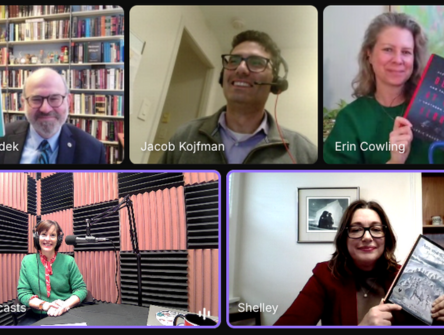Unprecedented force majeure
What will be the business and legal fallout from COVID-19?

The leading candidate for most-overused word of 2020 has to be “unprecedented.” As governments scramble to contain the spread of the novel coronavirus, and to limit the short-term damage to global and national economies, few people seem to be looking ahead to the COVID-19 pandemic’s likely long-term effects.
One of those effects is almost certain to be a global wave of lawsuits, as those infected sue those they blame for their exposure to the virus, and as supply chains shattered by plant closures snarl the just-in-time inventory process for manufacturers and retailers around the world.
“People hate hearing lawyers say this, but it’s true — this situation is fact-specific and contract-specific,” said Ellen Snow, a commercial litigator at Clyde & Co. in Toronto. “We’re all just feeling our way through.
“But we can be fairly confident that there’s going to be an increase in litigation. RBC just came out saying that we’re headed into a recession, and when that happens, you get a lot of lawsuits.”
Normally, businesses shield themselves from lawsuits over supply disruptions in two ways: through insurance and through force majeure clauses in contracts that provide an out in the event of an unpredictable disaster — an “act of God.”
The SARS epidemic of 2003 likely convinced many large concerns to expand their coverage to include disruptions caused by communicable disease outbreaks, said Amy MacGregor, a general insurance practitioner and partner at Cox & Palmer in Halifax. “But many businesses may just be covered for the basics, like fires or earthquakes,” she said.
Which means that a lot of firms are now poring over the fine print of their policies, trying to work out if coverage for shutdowns linked to physical damage (fires, floods, earthquakes) extends to coverage for non-physical causes, like quarantines.
“Say a worker in your operation tests positive and the building is quarantined,” said MacGregor. “Normally, insurance would be there to help that business get through, but do all the policies cover this?
“Many business interruption policies are triggered by direct physical damage or loss to an insured property. If a building is shut down because of a coronavirus case, is it contaminated? Is it covered?”
So expect to see suppliers suing their insurers, even as the companies they contracted to supply sue them, and are sued in turn by companies they contracted to supply — a daisy chain of litigation circling the world.
Even force majeure clauses might not provide adequate protection. For one thing, said Snow, Canada doesn’t have a lot of force majeure case law. “It’s something that tends to get resolved through arbitration. And there is no standardized wording. So we don’t know how all of these cases will go,” she said.
“A situation like this could well count as force majeure. There’s certainly a solid basis for making that argument, given the measures that governments have been imposing. That’s where the various states of emergency come into play; if your business has been shut down or limited by government order, you have a much stronger force majeure argument. But that’s going to apply much more to the services sector than to, say, manufacturing.
“You’re going to see a lot of parties arguing that companies with whom they’ve contracted should have seen this coming, should have planned for this eventuality.”
Lawsuits over personal exposure to the novel coronavirus are already starting to crop up. Passengers who were aboard that Grand Princess cruise ship were barely into quarantine in San Francisco mid-month when a handful of them filed suit against the cruise line, claiming the company knew a passenger was exhibiting symptoms but allowed others to board anyway.
Carissa Tanzola, a partner in labour law at Filion Wakely Thorup Angeletti LLP in Toronto, predicts a spike in “constructive dismissal” lawsuits filed by people sent home without pay, or forced to suffer cuts in paid hours, because of the risk of coronavirus exposure.
Some employers might also find themselves sued for violating privacy rights as they attempt to get ahead of the virus by asking employees personal questions about exposure. “So far, I’ve seen nothing that changes the rules on privacy,” said Tanzola. “Employers still face restrictions in terms of what they can ask employees. Employers can only tell employees they’re expected to report symptoms to medical professionals, self-isolate if they’re symptomatic or exposed.”
The best immediate defence for employers against lawsuits claiming negligence or wrongful death, said Snow, is to do whatever their business rivals are doing.
“A court is going to ask whether what a company did was reasonable in the circumstances,” she said. “A lot of people are asking whether officials are overreacting. For companies, that’s irrelevant — their best defence is to do what the competition is doing to protect people, so they can point to that if someone brings an action against them.”
In the longer term, she said, the best defence is to assume the next pandemic will be every bit as bad as this one — and plan accordingly.
“This should affect how contracts are drafted. Companies are going to want to build in warranties to protect themselves from the effects of future pandemics,” she said.
“I think the biggest impact is going to be in preparation. Most companies, I think, were not ready for this. They didn’t have protocols in place. They’ll have to get them now.”
That’s the thing about unprecedented crises — they’re only unprecedented the first time.


